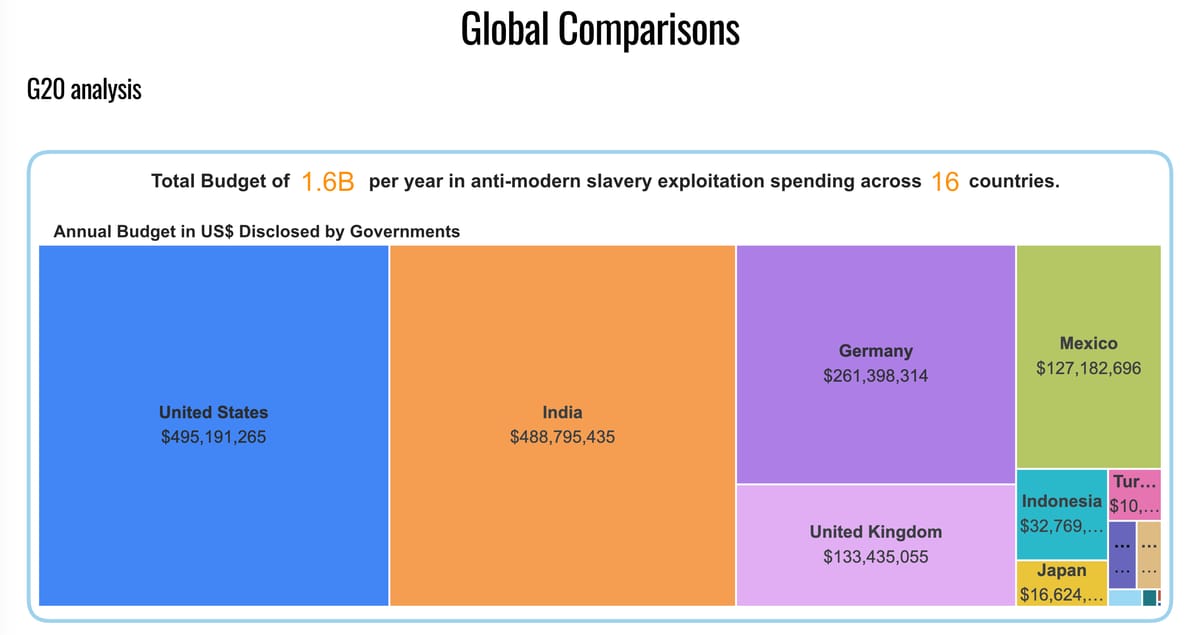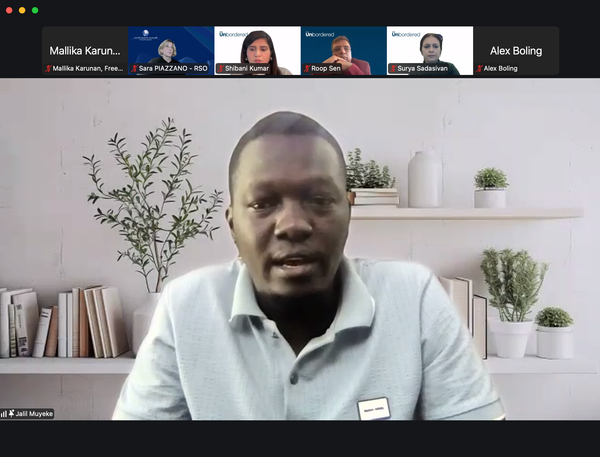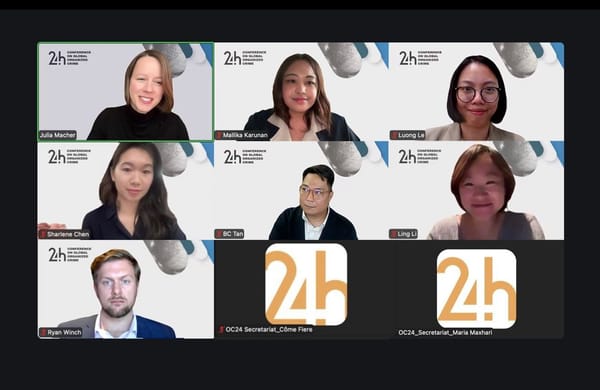A new data platform tracks government action on exploitation
Praeveni Global’s new data index shows G20 countries are allocating limited resources to combat human trafficking.

Praeveni Global has announced the launch of its Modern Slavery Prevention Index, a platform designed to provide a better understanding of the resources allocated by governments – particularly those of the G20 – to combat exploitation, including all forms of modern slavery.
The index seeks to determine the extent to which governments are taking action to reduce structural precarity and create safe environments in which vulnerable populations can retain the benefits of their labour and improve their quality of life. It analyzes the plans and strategies governments have formulated to counter exploitation, their commitments and objectives, the impacts sought, and the resources made available.
Each country analysis comprises information and data on national strategies, data gathered, reports generated, and victims and perpetrators; an evaluation of existing plans and objectives; publicly disclosed dedicated funding; and a brief summary of conclusions. The platform’s creators note that assessing the extent to which a government’s commitments are capable of achieving its stated objectives involves reviewing goals according to the thematic areas they address, the institutional infrastructure developed, and the capacity to consistently carry out fundamental activities such as data gathering, production of reports, and knowledge sharing.
Contextual information and data on domestic vulnerabilities, such as poverty, inequality, reliance on the informal economy, and internet access, are incorporated to account for the underlying socioeconomic factors that shape vulnerability within each country. Also analyzed are the ways in which governments seek to mitigate risks to vulnerable people abroad arising from trade, supply chains, organized criminal activities, and money laundering.
While Praeveni believes that transparency, disclosure and reporting are essential for any progress, the content of the platform is based only on governments’ publicly available and accessible disclosure and reporting, which is often limited in its scope. However, many useful insights can still be derived, both from the data itself and from the gaps revealed through its compilation.
For example, while the average annual dedicated budget is US$1.6 billion across 16 countries, 60 per cent of the total originates from the United States and India, indicating not only that resources are inadequate, but that they are also spread too thinly, Praeveni notes.
Furthermore, many countries lack a central agency with the capacity to tackle exploitation effectively. In some, such as the United States, a central office coordinates government activity across multiple institutions; in others, such as the UK, well-developed intergovernmental arrangements make it hard to identify where responsibility ultimately lies. Many countries, however, have neither the resources nor a sufficiently empowered central office to produce even basic annual reporting on victims, perpetrators, and illicit proceeds, highlighting the inconsistency and weakness of existing infrastructures.
It is also notable that issues such as wage theft, document fraud, exploitation in supply chains, money laundering, barriers to collective bargaining, and perpetrator recidivism are infrequently mentioned, while online exploitation has only been incorporated by some governments.
While the platform will be expanded and updated on an ongoing basis, a picture is already emerging of under-resourcing, a lack of capacity to implement commitments effectively, and the need for plans and strategies with greater adaptability. Many countries also lack the basic permanent infrastructure to gather collective data and actionable information, produce regular reports, design effective responses, and coordinate efficiently.
Praeveni Global was established by Kevin Hyland, the UK’s first independent Anti-Slavery Commissioner, and chair of Arise Foundation, and Duncan Jepson, founder and managing director of Liberty Shared, and a professor at USC Dornsife Wrigley School Institute of Environment and Sustainability. They will launch the platform at the G20 Leaders’ Summit this weekend.




